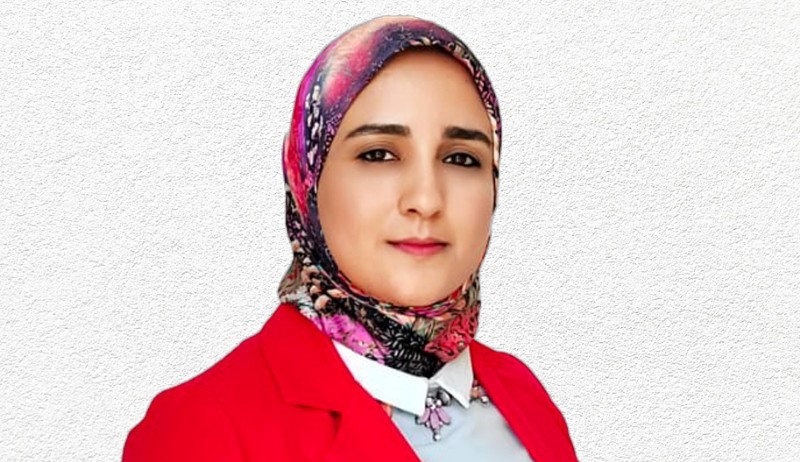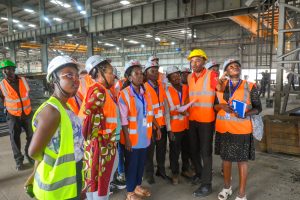Meet Fatima Ezzahra Azemzi, co-founder and COO of AZA Petrosolutions. From Agadir, this Orange Corners Morocco alum is giving the fuel industry a digital makeover with smart IoT solutions. From tackling fraud and waste in fuel logistics to enabling real-time data and pricing updates for petrol stations, AZA Petrosolutions is driving innovation in a traditionally conservative industry. With major clients in Morocco and international expansions already underway, she’s on a mission that makes petrol stations smarter than ever.
Hi Fatima Ezzahra! Could you introduce yourself and AZA Petrosolutions?
I’m Fatima Ezzahra, co-founder and COO of AZA Petrosolutions. We specialise in IoT solutions for the petroleum industry. Our smart fuel management system digitalises the process from fuel delivery to transaction. We have two main products: the AZA Fuel Management System (AFMS) for petrol stations and the AZA Fuel Management System Logistics (AFMSL), for companies that are depending on fuel in their daily activities and that have their own private petrol stations.
We’re already collaborating with major industry players in Morocco, including TotalEnergies and Ola Energy for our AFMS Stations. In the logistics sector, our largest client is COPAG, Morocco’s leading milk distributor. We’ve also begun expanding internationally, with deployments in several stations in Saudi Arabia. Most recently, we signed a contract with a Spanish company and are actively exploring the Portuguese market, marking our first steps into Europe.
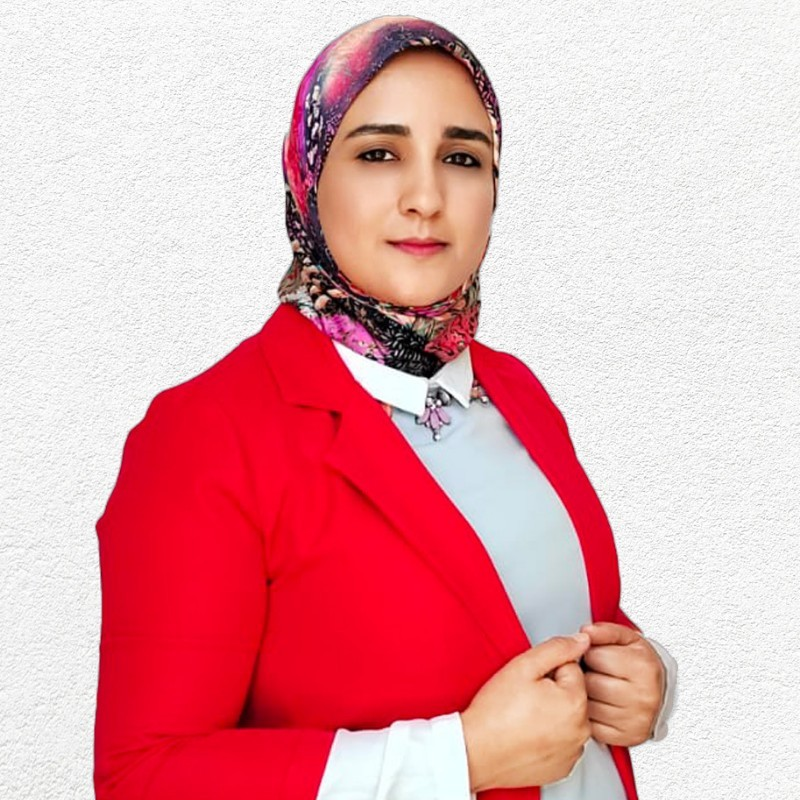
For those of us who don’t know anything about fuel management, what does a smart fuel management system do and why is it important to have one?
The answer to that question differs per product, because even though both products are related to fuel, they have different functionalities. The AFMS Logistics was our first product, originally built for a construction company who came to us with a problem around missing fuel. They used to buy massive amounts of fuel, but had no way to track where it went. And every month their administration showed they were buying more fuel than they actually used.
Before they started working with AFMS Logistics, the normal process was that a driver would go to the administrative office to receive a piece of paper on which the amount of fuel he’s allocated is written. He’d then go to the pump and hand over that paper to get fuelled. This paper-based system is prone to mistakes: papers get lost, numbers get changed, or in the worst-case scenario, there’s potential for fraud. For larger companies that use a lot of fuel, this loss can go in the millions of dirhams per month. And it’s not just about mismanagement or corruption, it could also be about an undiscovered leak somewhere, or other problems at a petrol station.
Our hardware fully digitises this fueling process. We install our proprietary fuel management terminal at private petrol stations, connecting it directly to the pumps and tanks. All data is uploaded to the cloud, allowing clients to monitor operations in real time through a web or mobile app, anytime, anywhere. Instead of using paper logs, drivers are equipped with NFC tags. At the pump, they simply badge their tag to receive a pre-authorised fuel load. The system knows the driver’s destination and calculates the required fuel for the route, with a built-in margin to account for variations like driving speed.
Our second product is designed specifically for public petrol stations and operates a bit differently. Unlike logistics fleets, they don’t need to manage fuel quotas. Instead, we provide real-time data to help them make faster, data-driven pricing decisions. What once took the mother company hours to update across multiple stations can now be done in just 30 seconds via our app. The system also includes shift management tools and a centralised dashboard for all stations under the same brand. It displays key metrics such as turnover, helping identify top-performing locations. Additionally, the platform monitors pump and tank data, like fuel temperature and quality. Access is tiered: head offices get full visibility across all stations, regional managers can monitor their assigned zones, and individual station managers see detailed data for their specific site. Everyone gets the insights relevant to their role, in real time.
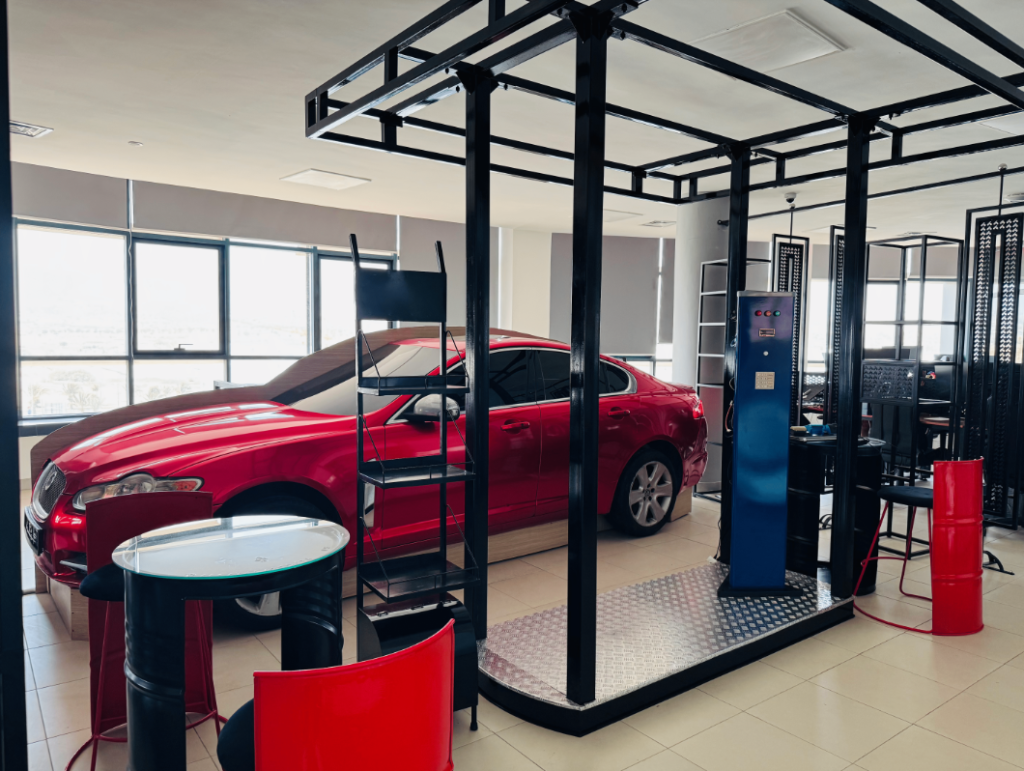
What are your plans for the future?
I believe a successful startup shouldn’t limited itself to only one or two products. No, you always need new things, new ideas. One of the new products we’re working on right now is a payment app. This should be the next step in our client experience. The app will show customers information like nearest petrol stations, prices for different types of fuel. But most importantly: it should allow clients to set up electronic payments to fuel their car.
We’re currently testing the app with a partner here in Morocco, but it’s not in the market yet because of Morocco’s strict regulations around electronic payments. We’re currently in discussions with the CMI, the organisation responsible for payments in Morocco, as well as with our bank. We’ve been working on this app since our Orange Corners days though, as we really want to use our presence in the market to create something that’ll benefit not just us, but also make life easier for everyone. Hopefully it’ll happen some time in 2025!
We’re also working on moving our production to Morocco, manufacture our hardware here. We currently import the hardware from Italy, and although we designed the electronic cards ourselves, they’re printed in China. We’re planning to create a manufacturing unit to do everything here ourselves, but we need to get an ATEX certification first. A petrol station is an explosive zone after all. And once we start manufacturing our own hardware, we can also think about selling it.
We aim to go beyond just fuel and fully digitalise the entire petrol station experience, including services like the restaurant, car wash and maintenance. Imagine this: on your morning commute, you pre-order your coffee, schedule a tyre change and reserve your fuel, all through one app. When you arrive at the station, a staff member is ready to service your car, your fuel is loaded and your coffee is waiting. At the end, you simply pay for everything via the app. Just like with our fuel management system, the station owner has access to all service and sales data in real-time, enabling smarter operations and a seamless customer experience.
I believe a successful startup shouldn’t limited itself to only one or two products. You always need new things, new ideas!
Fatima Ezzahra Azemzi, COO of AZA Petrosolutions
That sounds very futuristic! Are there any countries you’re looking at in particular that you feel are ready for this?
We’re focusing mainly on the Gulf region, where convenience is highly valued—people generally prefer not to fuel their cars themselves. I was recently in Saudi Arabia and saw firsthand how committed they are to digitalisation. They’re very open to adopting new technologies. The UAE and Qatar are also ahead in this shift, making them attractive markets for us. We’re actively building collaborations in the region, working with local partners who can represent us. In Saudi Arabia, for example, people may not know AZA Petrosolutions yet, but they trust our local partner—that local trust is the key to successful international expansion in my view.
But also in Morocco there’s places that would benefit from that. Like around Casablanca, where it’s always very crowded. People drive the same route every day, and they’re in a rush. They really appreciate a bit of convenience in their lives.
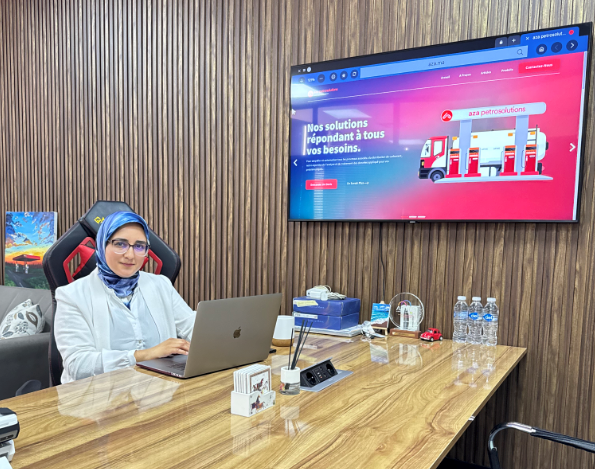
In just three years, AZA Petrosolutions has grown into a company of considerable size. Did you already get any investments?
We got our first investment even before joining Orange Corners! There are very few successful startups here in Morocco that didn’t benefit from all these entrepreneurial programmes financially speaking, but we’re one of them. We only ever got a 20,000 grant once, back in 2021. We’re currently at the point that our monthly revenue covers almost all our expenses though, our monthly and recurring expenses. For a tech company it’s very hard to reach that point, but we have reached it.
But businesses such as ours are always in need of more money, especially to improve the hardware. It’s so easy to spend a million dirham on hardware. So, we’re planning to start raising again, not in 2025, but maybe in 2026. There are Moroccan VCs, and one of them already invested in us, but for our second round we’re looking at international VCs, to help us with the global expansion.
Our first investment really forced us to look at structure. In the beginning we weren’t very structured. Myself for example, I used to work in operations, in accounting, in HR, everything really. My co-founders too, they did everything. After the investment, we felt we needed to work more structured. Everyone took a department. The one driving everything became CEO, I myself took charge of the operations. And that’s how it’s been ever since.
We aim to go beyond just fuel and fully digitalise the entire petrol station experience
Fatima Ezzahra, AZA Petrosolutions
What’s it like being a female entrepreneur in a male-dominated sector like yours?
We have a few ladies working here. We’re currently 5, some of them in finance, others in the helpdesk. I myself don’t have a background in the field, my degree is in management. Our CFO is an engineer, but in automation. It was purely a coincidence we ended up doing this. So yeah, we had to educate ourselves, learn about the sector. Basic things like how pumps work, how tanks work. It took a while to reach the expertise we have today, but along the way we’ve become experts in this industry. So today in conversations, I always feel taken seriously. People in this field, they know details, and when they go deep and they find you know what you talk about, there are no issues. For our clients, not having a degree in the field is no excuse. If you develop a product, you have to know it from A to Z!
Follow AZA Petrosolutions:
Website
LinkedIn
Facebook

